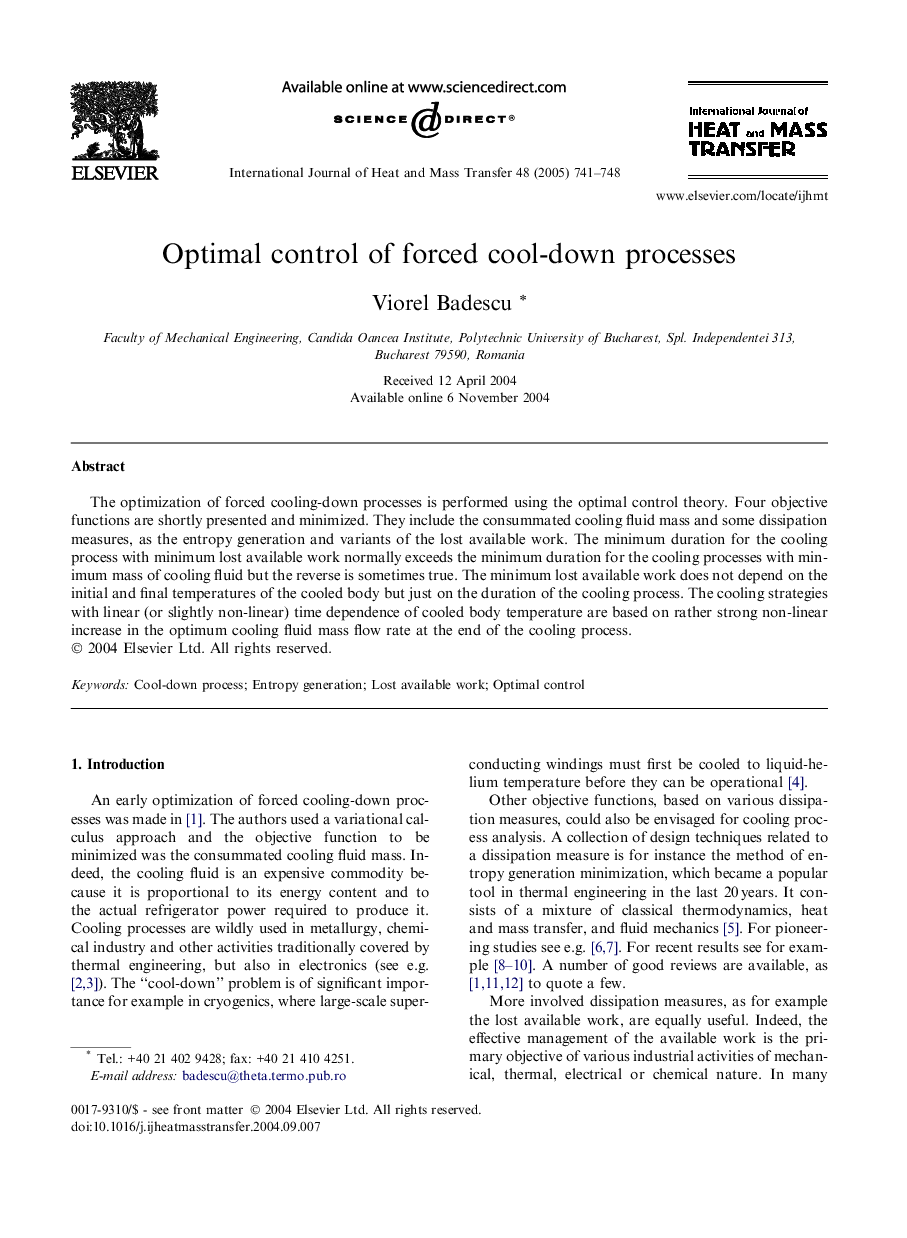| Article ID | Journal | Published Year | Pages | File Type |
|---|---|---|---|---|
| 9691673 | International Journal of Heat and Mass Transfer | 2005 | 8 Pages |
Abstract
The optimization of forced cooling-down processes is performed using the optimal control theory. Four objective functions are shortly presented and minimized. They include the consummated cooling fluid mass and some dissipation measures, as the entropy generation and variants of the lost available work. The minimum duration for the cooling process with minimum lost available work normally exceeds the minimum duration for the cooling processes with minimum mass of cooling fluid but the reverse is sometimes true. The minimum lost available work does not depend on the initial and final temperatures of the cooled body but just on the duration of the cooling process. The cooling strategies with linear (or slightly non-linear) time dependence of cooled body temperature are based on rather strong non-linear increase in the optimum cooling fluid mass flow rate at the end of the cooling process.
Keywords
Related Topics
Physical Sciences and Engineering
Chemical Engineering
Fluid Flow and Transfer Processes
Authors
Viorel Badescu,
